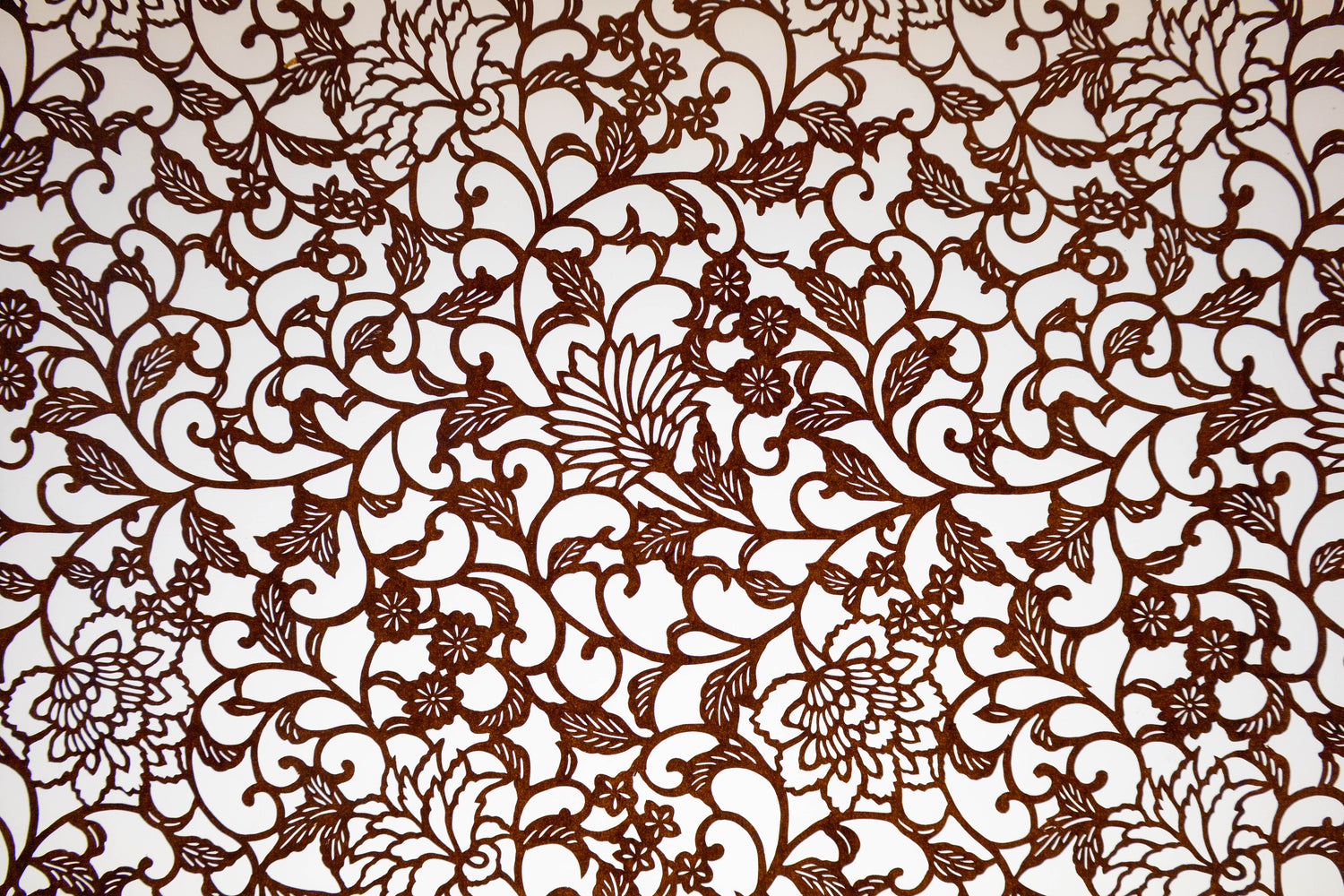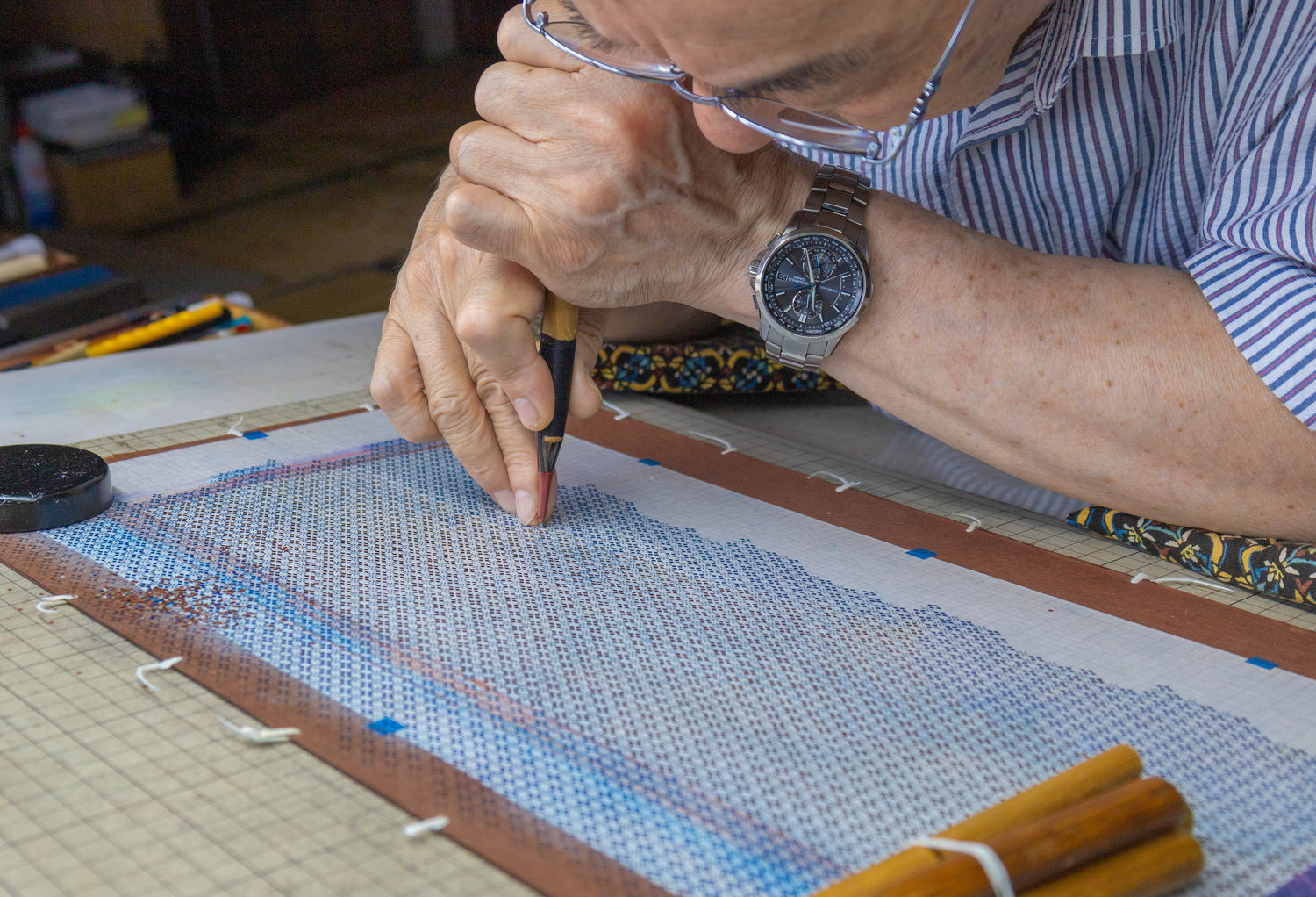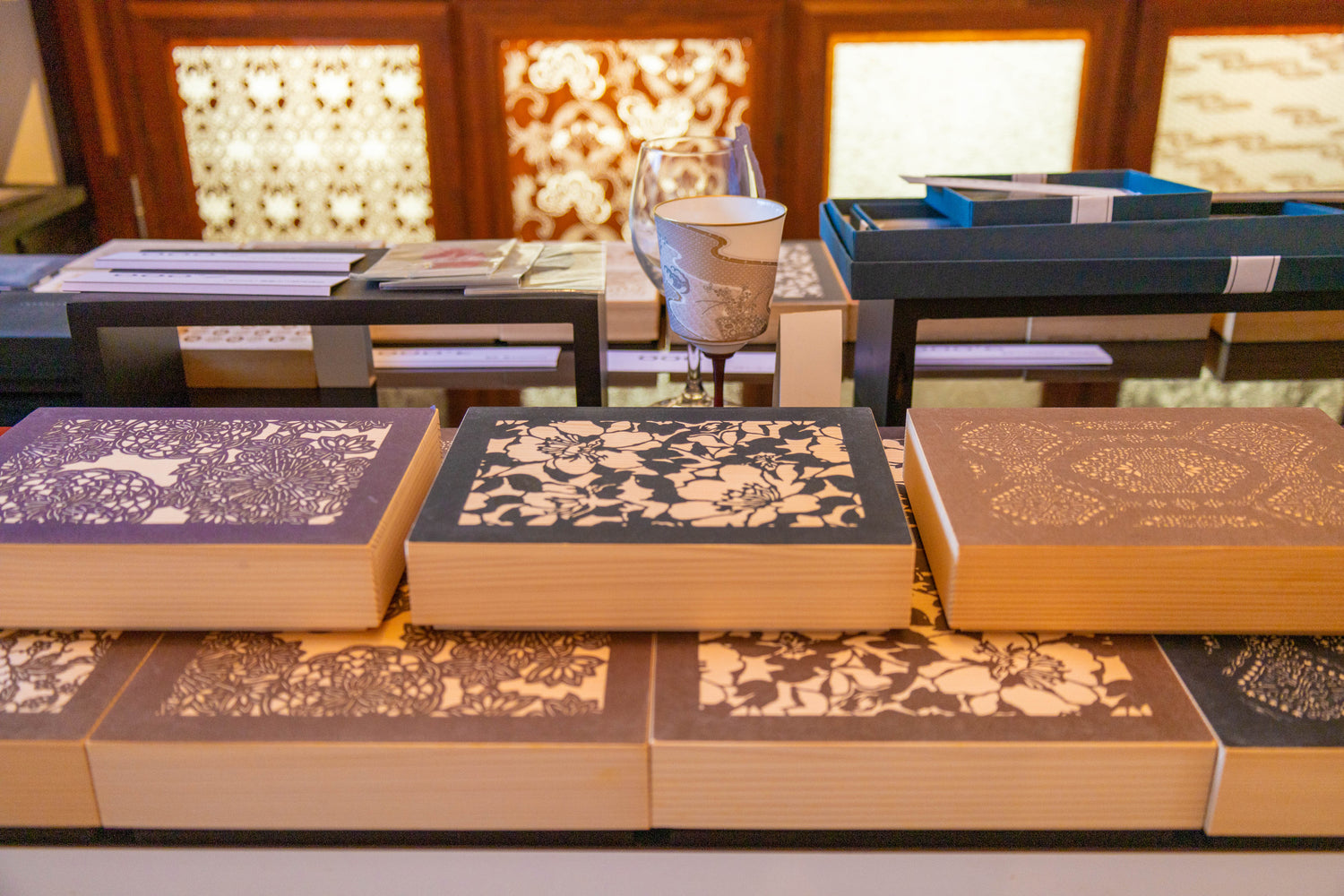株式会社オコシ型紙商店
Ise Katagami paperback book box [medallion] light ink
Ise Katagami paperback book box [medallion] light ink
Supplementary product information
Supplementary product information
Place of production: Mie Prefecture
Dimensions:
・(Width) 145mm
・(Depth) 195mm
・(Height) 43mm
Materials:
Main body: Fir wood
Inner cushion: Suede fabric
・This product uses natural wood materials. Fir wood is a soft material, so it is prone to scratches and dents, and being natural wood, it will change color over time.
・The photographs shown may appear different from the actual colors depending on your screen.
・The accessories shown in the usage examples in the photographs (accessories, watches, postcards, pens, etc.) are not included.
Couldn't load pickup availability
This decorative box features a lid-type design. It can also be stylishly displayed on walls like a fabric panel.
【MEDALLION】
A pattern expressing a cosmic view that radiates outward from the center, symbolizing 'order and unity'. This design, originating from ancient Euclidean geometry, embodies our earnest wishes for 'prosperity' and 'peace'.
【FIR】
An evergreen tree also used for Christmas trees, it maintains its green color throughout winter and is considered a symbol of 'vitality'. It is also said that the essential oil components of fir have the ability to eliminate unpleasant odors.
![Ise Katagami paperback book box [medallion] light ink](http://rashiku.store/cdn/shop/files/bunkobako_medallion_usuzumi_1.jpg?v=1689656099&width=1445)
![Ise Katagami paperback book box [medallion] light ink](http://rashiku.store/cdn/shop/files/bunkobako_medallion_usuzumi_2.jpg?v=1689656099&width=1445)
![Ise Katagami paperback book box [medallion] light ink](http://rashiku.store/cdn/shop/files/bunkobako_medallion_usuzumi_3.jpg?v=1689656099&width=1445)
![Ise Katagami paperback book box [medallion] light ink](http://rashiku.store/cdn/shop/files/bunkobako_medallion_usuzumi_4.webp?v=1689656099&width=1445)
![Ise Katagami paperback book box [medallion] light ink](http://rashiku.store/cdn/shop/files/bunkobako_1_1651d844-ac16-4dec-847a-77b215e5eb9a.jpg?v=1689656099&width=1445)
![Ise Katagami paperback book box [medallion] light ink](http://rashiku.store/cdn/shop/files/bunkobako_2_bcbb3be7-9564-41d6-aa04-8f2632f90911.jpg?v=1689656100&width=1445)
![Ise Katagami paperback book box [medallion] light ink](http://rashiku.store/cdn/shop/files/bunkobako_3_72334a17-f425-45b4-ab5f-caa0a33284f0.jpg?v=1689656100&width=1445)

The History of Ise Katagami
While there are various theories about the origins of Ise Katagami, it is said that during the Edo period, stencil dyeing was used for samurai ceremonial dress (kamishimo), and as the small pattern designs became more intricate, the stencil paper technique developed. With the protection of the Kishu domain, stencil merchants organized trade associations and traveled throughout the country to sell their products, which led to the nationwide spread of Ise Katagami.

Ise Katagami Techniques and Production Process
There are 4 types of traditional carving techniques: kiri-bori (awl carving), tsuki-bori (chisel carving), hiki-bori (pull carving), and dougu-bori (tool carving). Usually, each craftsman works as a specialist in their respective carving techniques.
The production process involves creating preliminary sketches of the design, carving the komoto-gata (small master pattern), making komoto-utushi (small pattern transfer), and then proceeding to carve the transferred patterns.

Examples of Ise Katagami usage
Ise-katagami refers to stencil paper with patterns carved out for the purpose of dyeing designs on kimono. Its aesthetic design and artistry have captivated audiences overseas and are widely incorporated into fashion, interior design, and various other products and projects.
Ise Katagami
Ise Katagami originates from the Shiroko, Teraie, and Ejima districts of Suzuka City, Mie Prefecture.
Ise Katagami is created by applying persimmon tannin to Mino washi (Japanese paper), laminating the sheets alternately in vertical and horizontal directions to increase strength, and applying persimmon tannin again to create the base paper. Kimono patterns and designs are then hand-carved using carving knives to create the stencil paper.







